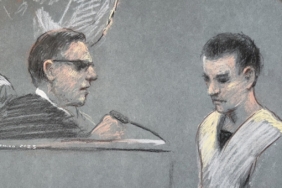A top aide of Benjamin Netanyahu has been questioned by police investigating reports of alterations made to official records of phone calls involving the Israeli prime minister on the morning of the 7 October attacks.
Israeli media reported that Netanyahu’s chief of staff, Tzachi Braverman, is suspected of changing the recorded time of a conversation the prime minister held with his military secretary in the first minutes of the attack to protect the prime minister.
Netanyahu’s office has denied the allegation, accusing critics of “another complete fabrication that is also part of an unprecedented media witch-hunt against the prime minister’s office during wartime, designed to whitewash the grave failures of others on the night of October 7,” according to the Times of Israel.
Braverman called the allegations against him “severe slander” and “wild incitement”, the newspaper said.
The inquiry could be damaging for the Israeli leader, who has fought off loud calls in Israel for a public inquiry into the multiple failures that meant Israel was caught out by the attack from Gaza on 7 October last year. Hamas militants killed 1,200 people, mostly civilians, and abducted 250 more, triggering the bloody Israeli offensive into the territory.
Netanyahu has sought to blame Israel’s military and security services, and his office is now facing multiple investigations into alleged acts to divert criticism of the Israeli prime minister.
Another Netanyahu aide, Eli Feldstein, was released after interrogation on suspicion of leaking classified documents to foreign media. The leaks, to British and German newspapers, appeared to be aimed at reinforcing Netanyahu’s position in negotiations for a ceasefire in Gaza and diverting domestic criticism of his failure to conclude a deal to free the remaining hostages held by Hamas.
Netanyahu, who already is on trial in a series of corruption cases, has not been named as a suspect in the latest scandals. His office and representatives of those under investigation have denied any wrongdoing.
He has also been told by Israel’s attorney general to re-evaluate the position of his far-right national security minister, Itamar Ben-Gvir, citing the far-right politician’s alleged interference in police matters.
Gali Baharav-Miara, the attorney general, sent a letter to Netanyahu in which she described instances when Ben-Gvir, who is tasked with setting general policy, apparently gave operational instructions that threatened the police’s apolitical status.
“The combination of the alleged improper interventions in police activities and police officers’ dependence on the minister for their promotion undermines the possibility of ensuring that the police will act out of loyalty to the public and not to the political echelon,” Baharav-Miara said in a statement.
There was no immediate comment from Netanyahu’s office.
Ben-Gvir, who heads a small ultra-nationalist party in Netanyahu’s coalition, wrote on social media: “The attempted coup by [the attorney general] has begun. The only dismissal that needs to happen is that of the attorney general.”
The investigations into the alleged tampering with call records have revealed new details of the hours before the 7 October attacks, and of the reaction of senior officials once they had been alerted to the waves of missiles fired from Gaza that preceded the ground assault by Hamas and other militants on surrounding communities and military bases in Israel.
One area of inquiry has been the reaction by military and other officials to reports that a number of Israeli sim cards known to be used by Hamas military commanders had been activated on the eve of the attacks. Israeli intelligence services and military assessed that the use of the cards was most likely to indicate a training exercise, though took some precautions against a relatively small-scale attack.
According to Israeli media, Netanyahu spoke to a key military official charged with channelling warnings to the prime minister at 6.29am on a standard phone line and then again at 6.40am on a special secure line.
Braverman is suspected of changing the time stamp of the second conversation, in which the extent of the attack became clearer, to the earlier time of 6.29am.
Despite the scandals, analysts believe Netanyahu will stay in power in Israel until elections due in 2026 and possibly longer. During a tumultuous fortnight, he successfully fired his defence minister, a bitter personal rival, and was boosted by the result of the US election.
Recent polls show Netanyahu remains unpopular but his hardline policies resonate with many voters. Though their methodology has been questioned, recent surveys suggest Netanyahu’s party Likud could be the biggest winner if elections were held now.
Netanyahu’s coalition remains intact after a potential collapse over the issue of the conscription of Israel’s Orthodox Jews was narrowly avoided. Political opposition remains divided and disoriented.
“That Netanyahu can think about further terms says a lot about the inability of [the left] in Israel to get over relatively small disagreements to create a joint vision for the future, or at least an alternative vision,” Prof Tamar Hermann, a senior fellow at the Israel Democracy Institute, told the Guardian last week.






Yorumlar kapalı.